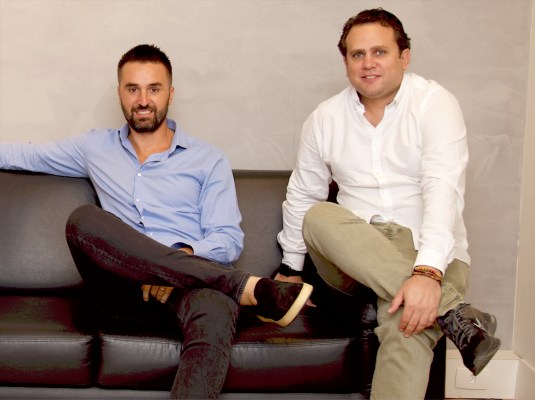Brazilian construction tech startup Ambar announced it has raised a large Series C round: R$204 million, approximately $36 million at today’s midmarket rate. The round was co-led by Brazil-based Echo Capital and Oria Capital, with participation from TPG Capital, Argonautic Ventures and others.
Ambar was created in 2013 with the ambition to leverage technology to make the civil construction process more efficient. According to the company, it has raised R$360 million in equity funding to date. That’s some $100 million, CEO Bruno Balbinot estimated.
This $100 million figure is higher than the current equivalent of R$360 million in dollars, but the exchange rate has varied quite a bit over the years, so figuring out that number isn’t straightforward. And on the other hand, it doesn’t account for the fact that the company also raised venture debt.
Regardless of the exact tally, the gist is that Ambar now has a significant amount of capital to execute its plans. Talking to TechCrunch, Balbinot explained that the startup plans to use the proceeds to boost the digitization arm of its business, for which it sees a strong need across Latin America.
While Spanish-speaking Latin America is driving some of its revenue, it is Brazil where Ambar is most present, Balbinot said. The startup’s home country presents two advantages: It is the region’s largest market, and Brazilian Portuguese acts as a moat against competitors.
According to Ambar’s site, it has 467 active clients. Three of these are located in the U.S., but its presence there is more of a learning experiment, Balbinot told me. In contrast, it is currently present on 1,500 building sites across Brazil.
Ambar has two sides to its business: Digitization, which it is now planning to boost further, and industrialization, which some media outlets have likened to Lego for the construction sector.
Ambar is not a general contractor, though. “Our angle is to partner with those who construct, and we will never construct,” Balbinot said in Portuguese. Rather than simply claiming that Ambar is a tech company, he backs it up with its unit economics, which are “much higher than in the construction sector.”
Balbinot and his co-founder Ian Fadel have an unexpected source of inspiration: the automotive industry. Having both worked in connection with Volkswagen, they hope to bring the same kind of process-driven approach to the construction sector.
Transforming the construction business to make it more efficient also happens to make it more sustainable. By optimizing human and material resources, Ambar is reducing waste, which is a huge byproduct of traditional construction.
This is an issue its latest investors are committed to. Oria Capital is a B corporation, and the environmental, social and governance (ESG) section of its site explains that “Oria’s portfolio aims to contribute with the main Sustainable Development Objectives proposed by the UN.”
In addition, the Series C round was co-led by Echo Capital, the newly formed growth fund of Ambar board member Guilherme Weege, who has ties to the United Nations Global Compact initiative. The CEO of fashion group Grupo Malwee is one of the business leaders who signed the initiative’s Business Ambition for 1.5°C commitment.
Both funds also have portfolio success stories that Ambar would like to emulate. Weege’s family office backed Infracommerce, a Brazilian company that recently IPO’d on the Novo Mercado segment of São Paulo’s B3 stock exchange. As for Oria, its third fund of $100 million financed a follow-on investment into Zenvia, which went public on the Nasdaq last July.
Ambar is also part of the companies backed by Oria’s third fund and has big growth plans for next year: “We are going to double the number of simultaneous construction works with applied Ambar products and win 970 new clients in 2022,” Balbinot said.
Having recently bought software company Autodoc, Balbinot and his team plan to make the IT side of their business a priority. The startup wants to remove fragmentation and let its clients “access everything on just one platform,” Balbinot said. “If there were 10 applications and many people to control all this, now we will offer everything unified, with the same login.”
